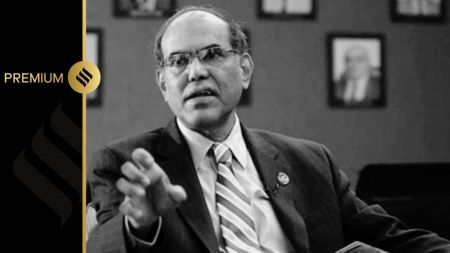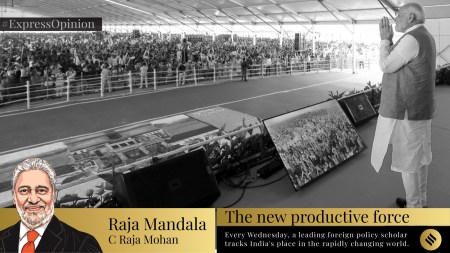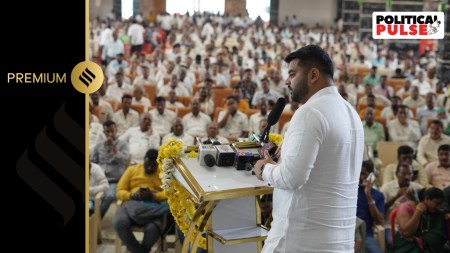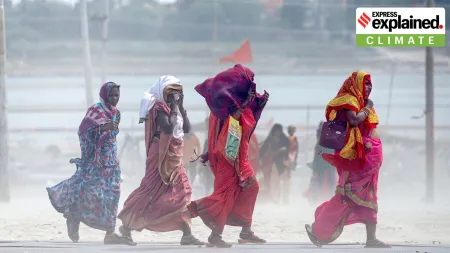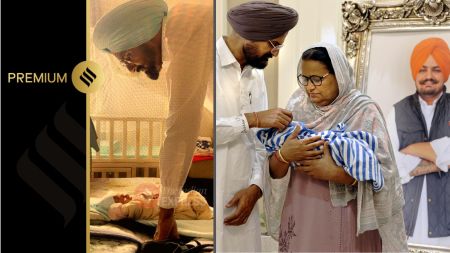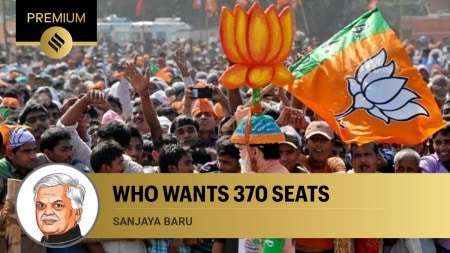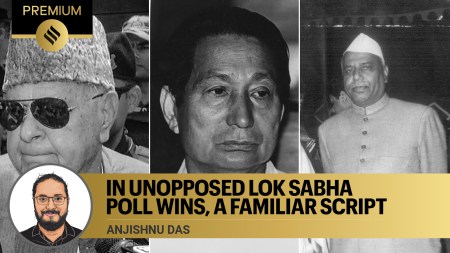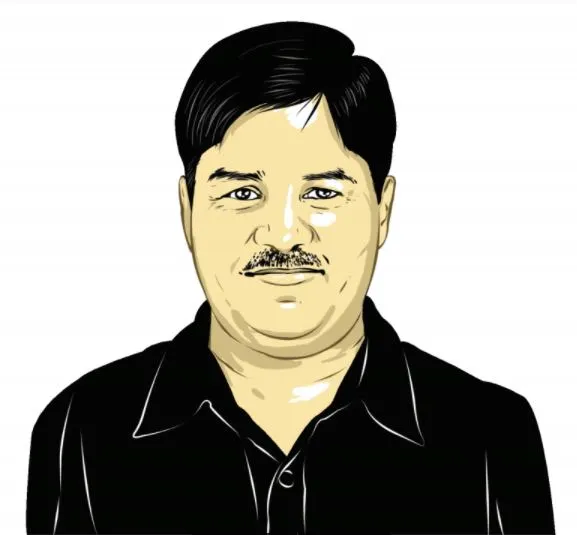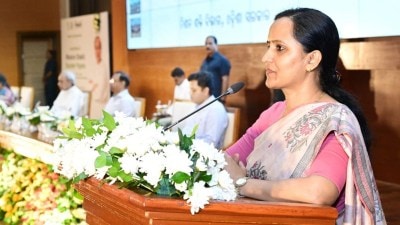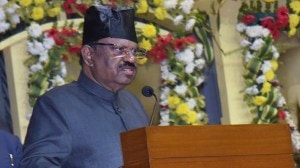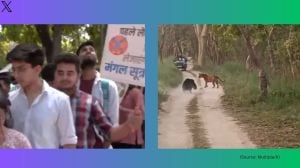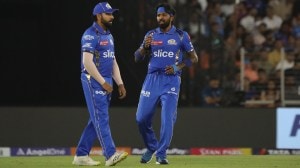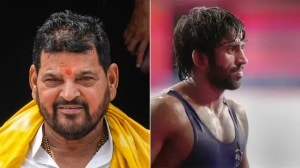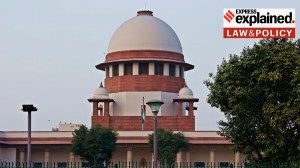- India
- International
88 and going strong: Beyond BSP, the reach of its founder Kanshi Ram
Leading the party in paying tributes to him, BSP chief Mayawati referred to Kanshi Ram's struggle to put Dalits and others on their feet. The party said the 'Chamcha Yug' he had talked about was still continuing.
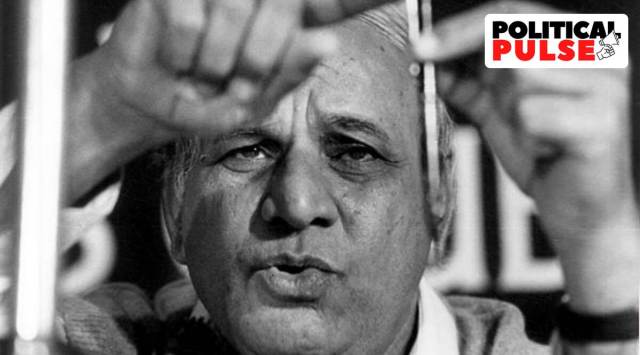 Kanshi Ram (Express Archives)
Kanshi Ram (Express Archives)In the six-plus decades since the late Kanshi Ram began his momentous fight for Dalits and other oppressed castes in the country, Tuesday marked perhaps his loneliest birth anniversary – coming days after the party that he founded fell to its worst-ever performance in the Assembly elections in Uttar Pradesh.
Leading the party in paying tributes to him, BSP chief Mayawati referred to Kanshi Ram’s struggle to put Dalits and others on their feet. The party said the ‘Chamcha Yug’ he had talked about was still continuing.
In September 1982, launching a book by that name, Kanshi Ram had predicted the end of ‘Chamcha Yug’ in 10 years. The launch coincided with the 50th anniversary of the Poona Pact, signed between Mahatma Gandhi and B R Ambedkar, to provide separate electorates to Scheduled Castes. Ambedkar was always bitter towards Gandhi for having forced him to “compromise” on the issue.
In the book, Kanshi Ram explained chamchas as “tools, agents and stooges of the High Caste Hindus”, adding: “The oppressed and exploited people of India who are about 85 percent of India’s total population are a leaderless lot. The High Caste Hindus have succeeded in creating leadernessness amongst them. Such a situation is most conducive for creating chamchas out of these castes and communities.”
While it is arguable what he would think of the BSP’s tally of 1 in the new UP Assembly, there is little doubt about the influence of Kanshi Ram in the state’s or the country’s politics.

Born on March 15, 1934, in Punjab’s Ropar district, Kanshi Ram was a research assistant at the Pune-based Explosives Research and Development Laboratory in 1964 when he quit with the goal of “building up a social transformation movement”. Dedicating himself to taking forward the social justice politics of Ambedkar, he founded the All India Backward and Minority Communities Employees Federation in 1971, which came to be better known by its acronym BAMCEF post 1978.
In 1981 he founded the social organisation DS-4 (Dalit Shoshit Samaj Sangharsh Samiti). Three years later, on the birth anniversary of Ambedkar, he dissolved it for the political outfit the BSP.
Like he wrote in the book, Kanshi Ram aimed to put together an invincible group of 85% of the country’s population – including the SCs, STs, OBCs and minorities. A slogan he gave later, that became immensely popular, captured the sentiment: “Jiski jitna sankhya bhari, uski utni bhaagedari (Greater the numbers, greater the share).”
In the 1984 post-Indira Gandhi assassination election, Kanshi Ram contested his first polls, as an Independent from Janjgir-Champa (now in Chhattisgarh). Amid a Congress wave, he managed to get 8.81% of the votes and came third.
He went on to make UP his political battlefield, rather than home state Punjab, which has the largest proportion of Dalits in the population, in the country. While the Dalits in Punjab were not known to vote along caste lines, in UP, the non-upper caste politics was in doldrums due to the declining health of Jat leader Chaudhary Charan Singh (he died in May 1987), with leaders like Mulayam Singh Yadav trying to fill the anti-Congress space.
Against this backdrop, Kanshi Ram gave the Dalits a voice, to seek their share in power. Not just Dalits but also OBCs which were under-represented sought out the party, with the BSP developing leaders among them and giving them tickets. It also got the votes of minorities, but mainly on the seats where the BSP was in a position of defeating the BJP.
 Kanshi Ram and Mayawati during a press conference at Taj Mahal. (Express Archives)
Kanshi Ram and Mayawati during a press conference at Taj Mahal. (Express Archives)
The leaders who rose during this time are still at the forefront of UP politics, including in other parties after divisions and fragmentation in the BSP. They include the late Kurmi leader Sonelal Patel whose progeny now head two different Apna Dal factions, SP leader Swami Prasad Maurya, SBSP leader O P Rajbhar, SP leader Dara Singh Chauhan, Lalji Verma, Ram Achal Rajbhar, and Indrajeet Saroj, to name a few.
However, the BSP soon realised that it could not come to power even in UP without the support of the upper castes. Kanshi Ram’s efforts to bring together the 85% “Bahujans” was successful though only in 1993, when the BSP formed an alliance with SP and a Mulayam-led government was formed in UP. This too broke by June 1995, as BSP withdrew from the government.
On the personal front, Kanshi Ram fought elections to the Lok Sabha several times, jumping into prominent contests against heavyweights such as V P Singh and Rajiv Gandhi, becoming an MP twice—in 1991 from Etawah, and from Hoshiarpur (Punjab) in 1996.
The Kanshi Ram-Mulayam alliance held the BJP back at the height of the Ram temple movement after the Babri Masjid demolition, with another hit slogan: “Mile Mulayam-Kanshi Ram, hava mein ud gaye Jaishreeram (Mulayam, Kanshi Ram come together, trounce BJP).”
His health declining, in September 2003, Kanshi Ram transferred the baton to Mayawati. Soon, the BSP withdrew from its aggressive slogans against upper castes, and Mayawati got full majority for the BSP in 2007 seeking votes for “Sarvajan” (with Brahmins) rather than “Bahujan”.
That was the BSP’s last big success. Now, even as its voters are moving away, new players like Chandrashekhar Azad ‘Ravan’ are trying to make their way into Dalit politics.
However, therein lies the impact of the politics of Kanshi Ram — who died in October 2006 — with not just newer Dalit voices but all parties realising the importance of factoring in representation for all social groups.
While Mayawati never forgave Mulayam, especially after the guest house incident – until she joined hands with Akhilesh Yadav in the 2019 Lok Sabha polls — Kanshi Ram said in an interview just after the SP-BSP alliance ended and Mayawati was sworn in as first Dalit CM of UP in June 1995, that he continued to see the SP patron as a fellow traveller.
“I am not interested in government, I am interested in movement. I will live and die for the movement… I think he (Mulayam) will support the BSP government… I still consider him an inseparable part of Bahujan.”
May 03: Latest News
- 01
- 02
- 03
- 04
- 05


